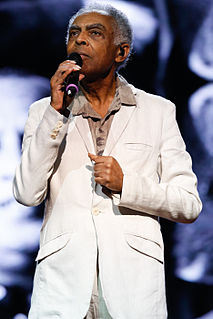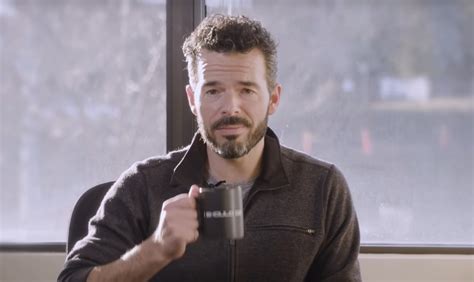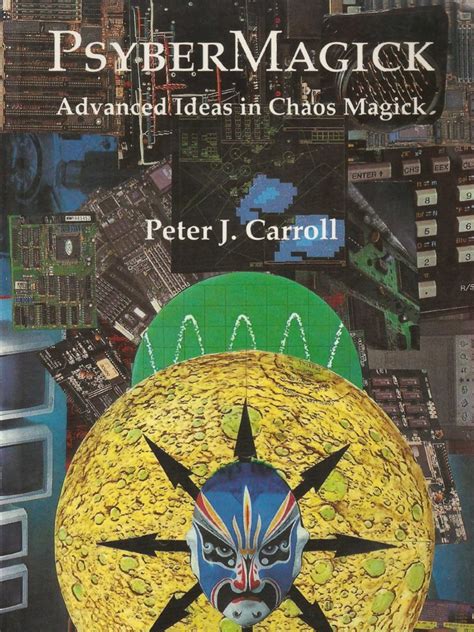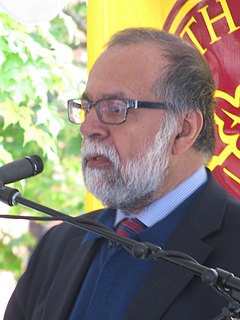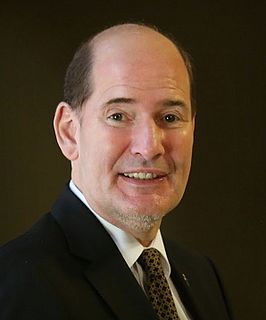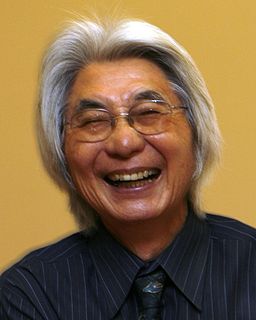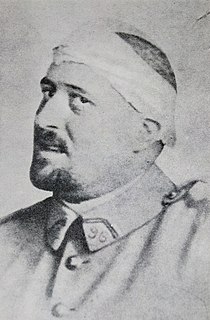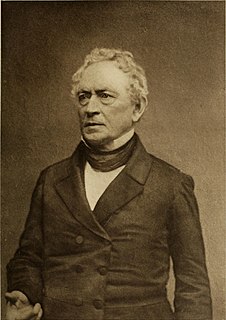Top 331 Civilizations Quotes & Sayings - Page 5
Explore popular Civilizations quotes.
Last updated on April 20, 2025.
To view an object in the proper light we must stand away from it. The study of the classical literatures gives the aloofness which cultivates insight. In learning to live with peoples and civilizations that have long ceased to be alive, we gain a vantage point, acquire an enlargement and elevation of thought, which enable us to study with a more impartial and liberal mind the condition of the society around us.
Well, we definitely need a strong and clear and assertive America. That's for sure. But you've always got to build alliances. And so it's very important that we are able to build those alliances. And where we don't do what in a way to extremists want us to do, which is to make this into a battle between the West and Islam - it's not. This isn't a clash between civilizations. It's about whether the values of tolerance and respect for difference prevail.
Of course, with agriculture came the first big civilizations, the first cities built of mud and brick, the first empires. And it was the administers of these empires who began hiring people to keep track of the wheat and sheep and wine that was owed and the taxes that was owed on them by making marks; marks on clay in that time.
I know a whole generation has been raised on the notion of multiculturalism; that all civilizations are just different. No! Not always. Sometimes things are better! Rule of law is better than autocracy and theocracy; equality of the sexes, better; protection of minorities, better; free speech, better; free elections, better; free appliances with large purchases, better! Don't get so tolerant that you tolerate intolerance.
We do injury to a child if we bring it up in a narrow Christianity, which prevents it from ever becoming capable of perceiving that there are treasures of purest gold to be found in non-Christian civilizations. Laical education does an even greater injury to children. It covers up those treasures, and those of Christianity as well.
Last evening attended Croghan Lodge International Order of Odd Fellows. Election of officers. Chosen Noble Grand. These social organizations have a number of good results. All who attend are educated in self-government. This in a marked way. They bind society together. The well-to-do and the poor should be brought together as much as possible. The separation into classes--castes--is our danger. It is the danger of all civilizations.
I do not think there is such a thing as a "clash of civilizations." When I say that Muslims as Muslims cannot be represented in the West, I was being ironic, and also referring to the fact that ninety percent of the time when people talk about "the problem of Muslims" in the West, it is to complain about the fact that Muslims have not "integrated."
Archaeology in general is the recovery and study of the material culture of past civilizations. Biblical archaeology is as an application of the science of archaeology to the field of biblical studies. Through the comparison and integration of Scripture with the evidence of history and culture derived from archaeology, new insights into the biblical context of people and events, and sometimes the interpretation of the text itself, are possible. In this way archaeology serves as a necessary tool for biblical exegesis and for apologetic concerns.
In many of the more relaxed civilizations on the Outer Eastern Rim of the Galaxy, the Hitch-Hiker's Guide has already supplanted the great Encyclopaedia Galactica as the standard repository of all knowledge and wisdom, for though it has many omissions and contains much that is apocryphal, or at least wildly inaccurate, it scores over the older, more pedestrian work in two important respects. First, it is slightly cheaper; and secondly it has the words DON'T PANIC inscribed in large friendly letters on its cover.
The psychological consequences of this spread of white culture have been out of all proportion to the materialistic. This world-wide cultural diffusion has protected us as man had never been protected before from having to take seriously the civilizations of other peoples; it has given to our culture a massive universality that we have long ceased to account for historically, and which we read off rather as necessary and inevitable.
Men come and go, cities rise and fall, whole civilizations appear and disappear-the earth remains, slightly modified. The earth remains, and the heartbreaking beauty where there are no hearts to break....I sometimes choose to think, no doubt perversely, that man is a dream, thought an illusion, and only rock is real. Rock and sun.
The Christian god can easily be pictured as virtually the same god as the many ancient gods of past civilizations. The Christian god is a three headed monster cruel vengeful and capricious. If one wishes to know more of this raging three headed beast like god one only needs to look at the caliber of people who say they serve him. They are always of two classes fools and hypocrites.
Investors, monarchies, and parliamentarians devised methods to control the processes of wealth accumulation and the power that came with it, but the ideology behind gold fever mobilized settlers to cross the Atlantic to an unknown fate. Subjugating entire societies and civilizations, enslaving whole countries, and slaughtering people village by village did not seem too high a price to pay, nor did it appear inhumane. The systems of colonization were modern and rational, but its ideological basis was madness.
I think that the global consciousness concerning all those elements that produce tension, fractions of societies, is changing in the sense that we all tend to understand a little more the needs for harmonizing the process and integrating races and cultures and producing multiculturalism and different melting-pot situations. That affects global things, tolerating the Arab, the African, the Eastern civilizations, getting rid of this hegemonic dominance by the West. That's all comprehensive now in terms both of understanding and approaching the whole planet.
It's more like there are some really obvious things that are different and then lots and lots of smaller things, lots of things about who lives and who dies, civilizations that rose and fell, all the way down to individual characters. That becomes the state of where you left your galaxy. The endings have a lot more sophistication and variety in them.
Men's souls are crooked and unsound things, not good materials out of which to build friendships, families, households, cities, civilizations. But good or no, these things must be built, and we must craft them with the materials at hand, and make as strong and stubborn redoubt as we can make, lest the horrors of the Night should triumph over us, not in some distant age to come, but now.
Africa is never the same to anyone who leaves it and returns again. It is not a land of change, but it is a land of moods and its moods are numberless. It is not fickle, but because it has mothered not only men, but races, and cradles not only cities, but civilizations - and seen them die, and seen new ones born again - Africa can be dispassionate, indifferent, warm, or cynical, replete with the weariness of too much wisdom.
A village in a country which is taking pains to become altogether standardized and pure, which aspires to succeed Victorian England as the chief mediocrity of the world, is no longer merely provincial, no longer downy and restful in its leaf-shadowed ignorance. It is a force seeking to conquer the earth. Sure of itself, it bullies other civilizations, as a traveling salesman in a brown derby conquers the wisdom of China and tacks advertisements of cigarettes over arches for centuries dedicated to the sayings of Confucius.
In our civilization, there are permanent forms which are part of every epoch and every culture. They are not especially difficult to detect. A minimal knowledge of physics, astrophysics, and perhaps mathematics, brings to light certain patterns that make these subjects easier to understand. It is striking to see the extreme similarity between these scientific propositions and the forms that recur in all times, places and civilizations.
The best defence [for a democracy, for the public good] is aggressiveness, the aggressiveness of the involved citizen. We need to reassert that slow, time-consuming, inefficient, boring process that requires our involvement; it is called 'being a citizen.' The public good is not something that you can see. It is not static. It is a process. It is the process by which democratic civilizations build themselves.
Ideas about a person's place in society, his role, lifestyle, and ego qualities will lose their hold as the cohesive forces in society disintegrate. Subculture values will proliferate to such a bewildering extent that a whole new class of professionals will arise to control them. Such a Transmutation Technology will deal in fashions, in ways of being. Lifestyle consultants will become the new priests of our civilizations. They will be the new magicians.
While [European] national cultures were concocted to distinguish one economic unit of capital from another, civilizational thinking was invented to unify these cultures against their colonial consequences. Islamic, Indian, or African civilizations were invented contrapuntally by Orientalism... in order to match, balance and thus authenticate 'Western Civilization'.
We have to learn to deal with this situation and prepare for contact. Studying the behavior pattern of the phenomenon, I came to the conclusion that they are neither friend nor foe, but study our planet and civilization from a mainly scientific perspective. They are as curious to learn more about us, as we would love to study other human and humanoid civilizations.
Clearly, mythology is no toy for children. Nor is it a matter of archaic, merely scholarly concern, of no moment to modern men of action. For its symbols (whether in the tangible form of images or in the abstract form of ideas) touch and release the deepest centers of motivation, moving literate and illiterate alike, moving mobs, moving civilizations.
We all flow from one fountain- Soul. All are expressions of one love. God does not appear, and flow out, only from narrow chinks and round bored wells here and there in favored races and places, but He flows in grand undivided currents, shoreless and boundless over creeds and forms and all kinds of civilizations and peoples and beasts, saturating all and fountainizing all.
Accepting Turkey as a member of the European club means that the club is open to outsiders, to Muslims, to poorer people, to developing countries, to countries with a slightly different cultural tradition but basically the same values. I think it's dangerous for the West to close the door; it doesn't do us any good and it doesn't do the rest of the world any good. Also, it reduces the danger of a "clash of civilizations".
Our expanding ethnic diversity of this century, a time when we will all be minorities, offers us an invitation to create a larger memory of who we are as Americans and to re-affirm our founding principle of equality. Let's put aside fears of the disuniting of America and warnings of the clash of civilizations. As Langston Hughes sang, Let America be America, where equality is in the air we breathe.
"What is the meaning of life?" This question has no answer except in the history of how it came to be asked. There is no answer because words have meaning, not life or persons or the universe itself. Our search for certainty rests in our attempts at understanding the history of all individual selves and all civilizations. Beyond that, there is only awe.
In the history of humanity there are no civilizations or cultures which fail to manifest, in one or a thousand ways, this need for an absolute that is called heaven, freedom, a miracle, a lost paradise to be regained, peace, the going beyond History... There is no religion in which everyday life is not considered a prison; there is no philosophy or ideology that does not think that we live in alienation.... Humanity has always had a nostalgia for the freedom that is only beauty, that is only real; life, plenitude, light.
The Left is my family. And it is threatened by terrible demons, like differentialism. "differentialist Left" are people who have learned nothing about tolerance. Or justice. People who, hiding behind a backward sense of tolerance and justice, explain to us that we must accept all the actions of all civilizations, including the stoning of adulterous wives or the mutilation of little girls.
It was a truism that all civilizations were basically neurotic until they made contact with everybody else and found their place within the ever-changing meta-civilisation of other beings, because, until then, during the stage when they honestly believed they might be entirely alone in existence, all solo societies were possessed of both an inflated sense of their own importance and a kind of existential terror at the sheer scale and apparent emptiness of the universe.
I think that one of the things that is happening in the so-called "clash of civilizations" is that the confidence that was once obvious in the Western Judeo-Christian tradition has been weakened tremendously. There's a feeling that there's a cynical, corporate layer that's really driving it - one that's ready to compromise - and that the real confident energy around the world is coming from Islam, that the believers take their own faith at face value and with great confidence and in far greater numbers.
The technologies which have had the most profound effects on human life are usually simple. A good example of a simple technology with profound historical consequences is hay. ... It was hay that allowed populations to grow and civilizations to flourish among the forests of Northern Europe. Hay moved the greatness of Rome to Paris and London, and later to Berlin and Moscow and New York.
I'm a champion for western civilization and, yes, our English language is a big part of it. It's a carrier of freedom. Wherever the English language has gone globally, freedom went with it. Science technology has always lifted up the standard of living on average of everybody on the planet. I want more of that, not less. There are civilizations that produce very little, if any. This western civilization is a superior civilization, and we want to share it with everybody.
That is the key to history. Terrific energy is expended - civilizations are built up - excellent institutions devised; but each time something goes wrong. Some fatal flaw always brings the selfish and cruel people to the top, and then it all slides back into misery and ruin. In fact, the machine conks. It seems to start up all right and runs a few yards, and then it breaks down.
How aware are we of our own inner life, our spirituality-something so intangible yet so priceless? How much effort do we make to perceive that which is not obvious, which can neither be seen nor heard? I believe the exploration and enrichment of the human spirit is what determines our very humanity. Such enrichment provides an inner compass that can lead civilizations to greatness.
This world has seen a great many civilizations. And many of them have survived for longer periods than ours up to the present. They were all as sure as we are today of having founded the first eternal civilization. We today differ from them in having our western civilization spread to embrace the entire planet, leaving no room on any continent for any other culture to take over if we fail.
Without poets, without artists... everything would fall apart into chaos. There would be no more seasons, no more civilizations, no more thought, no more humanity, no more life even; and impotent darkness would reign forever. Poets and artists together determine the features of their age, and the future meekly conforms to their edit.
Communication media enabled collective action on new scales, at new rates, among new groups of people, multiplied the power available to civilizations and enabled new forms of social interaction. The alphabet enabled empire and monotheism, the printing press enabled science and revolution, the telephone enabled bureaucracy and globalization, the internet enabled virtual communities and electronic markets, the mobile telephone enabled smart mobs and tribes of info-nomads.
Over the long term, the eclipse rate of great civilizations being overtaken is 100%. So you know how it's going to end. (Laughter) I'm more optimistic about the staying power of what's good in this country. But just because you have a wonderful spouse doesn't mean you should treat her badly. You have the feeling that some of the old virtues [that made this country great] are lessening. But there's so much good and so much strength left that I would not expect this country to suddenly founder.
The hippie is the scion of surplus value. The dropout can only claim sanctity in a society which offers something to be dropped out of--career, ambition, conspicuous consumption. The effects of hippie sanctimony can only be felt in the context of others who plunder his lifestyle for what they find good or profitable, a process known as rip-off by the hippie, who will not see how savagely he has pillaged intricate and demanding civilizations for his own parodic lifestyle.
There will be no room, here, for the smug myopia which views American civilization as the final solution to all world problems; which recommends our institutions for universal adoption and turns away with contempt from the serious study of the institutions of peoples whose civilizations may seem to us to be materially less advanced.
Words outlive people, institutions, civilizations. Words spur images, associations, memories, inspirations and synapse pulsations. Words send off physical resonations of thought into the nethersphere. Words hurt, soothe, inspire, demean, demand, incite, pacify, teach, romance, pervert, unite, divide. Words be powerful.
We have reaffirmed again and again that the United States is not and never will be at war with Islam. Islam teaches peace, and when it comes to America and Islam, there is no us and them, there's only us, because millions of Muslim Americans are part of the fabric of our country. So, we reject any suggestion of a clash of civilizations.
I simply don't like the culture of drugs. I never liked the hippies for it. I think it was a mistake to be all the time stoned and on weed. It didn't look right and it doesn't look right today either and the damage drugs have done to civilizations are too enormous. And besides, I don't need any drug to step out of myself. I don't want them and I do not need them.
What you of the CHOAM directorate seem unable to understand is that you seldom find real loyalties in commerce. ... Men must want to do things of their own innermost drives. People, not commercial organizations or chains of command, are what make great civilizations work. Every civilization depends upon the quality of the individuals it produces. If you over-organize humans, over-legalize them, suppress their urge to greatness - they cannot work and their civilization collapses.
Whether we ever get to know about them or not, there are very probably alien civilizations that are superhuman, to the point of being god-like in ways that exceed anything a theologian could possibly imagine. Their technical achievements would seem as supernatural to us as ours would seem to a Dark Age peasant transported to the twenty-first century. Imagine his response to a laptop computer, a mobile telephone, a hydrogen bomb or a jumbo jet.
Shamefully, all of us have wanted revenge on someone at some point for something. I've lived since before man and buffalo roamed this small planet. I have survived the beginning, bloom, and death of countless enemies, civilizations, and people. And the one truth I have learned most during all of these centuries is the old Japanese proverb. If you sit by the river long enough, you will see the body of your enemy float by.
The capacity for friendship usually goes with highly developed civilizations. The ability to cultivate people differs by culture and class; but on the whole, educated people have more ways to make friends... . In England, for instance, you find everyone in your class has read the same books. Here, people grope for something in common-like a newly engaged girl who came to me and said, "It's absolutely wonderful! His uncle and my cousin were on the same football team.
Many of our actions degrade our habitat because we undertake them in order to reach goals whose allure blinds us to myriad dire consequences. In order to fuel our complex civilizations, we are lacing our planet's atmosphere with carbon dioxide, a greenhouse gas that, if it has not already begun doing so, will soon warm the Ice Age climate to which we owe our very existence.
There is no life without guilt anyway, at least in the Western world. I think in other civilizations it might be different but if the world is getting Westernized all over, guilt will enter through the technology and democracy and their actions. It will come side by side so there won't be anymore innocent societies in the future I think which in fact is not such a bad thing.
Agriculture seems to be the first pursuit of civilized man. It enables him to escape from the life of the savage, and wandering shepherd, into that of social man, gathered into fixed communities and surrounding himself with the comforts and blessings of neighborhood, country, and home. It is agriculture alone, that fixes men in stationary dwellings, in villages, in towns, and cities, and enables the work of civilizations, in all its branches, to go on.
What sets worlds in motion is the interplay of differences, their attractions and repulsions. Life is plurality, death is uniformity. By suppressing differences and pecularities, by eliminating different civilizations and cultures, progress weakens life and favors death. The ideal of a single civilization for everyone, implicit in the cult of progress and technique, impoverishes and mutilates us. Every view of the world that becomes extinct, every culture that disappears, diminishes a possibility of life
Perhaps the rediscovery of our humanity, and the potential of the human spirit which we have read about in legends of older civilizations, or in accounts of solitary mystics, or in tales of science fiction writers - perhaps this will constitute the true revolution of the future. The new frontier lies not beyond the planets but within each one of us.
We now face the prospect of a kind of global civil war between those who refuse to consider the consequences of civilization's relentless advance and those who refuse to be silent partners in the destruction. More and more people of conscience are joining the effort to resist, but the time has come to make this struggle the central organizing principle of world civilizations.
We don't have a great clash of civilizations, a clash of ideologies, a clash of alternative models, where governments thought to themselves, if we go too far, if we sort of trample unreasonably on rights, we'll give birth to a political movement which will cost us our credibility, and will possibly cost us our offices, because people will vote for the other team, the other guys.
The idea of a group of elders is that, in past civilizations, they have linked worlds; the other world was also present in this one. There is also the argument that elders have "experience." The problem is that experience teaches fear of change. Experience kills imagination. Experience makes people conservative. What we are facing tomorrow requires the force of imagination, not wisdom from yesterday.
Poetry is the most direct and simple means of expressing oneself in words: the most primitive nations have poetry, but only quitewell developed civilizations can produce good prose. So don't think of poetry as a perverse and unnatural way of distorting ordinary prose statements: prose is a much less natural way of speaking than poetry is. If you listen to small children, and to the amount of chanting and singsong in their speech, you'll see what I mean.














